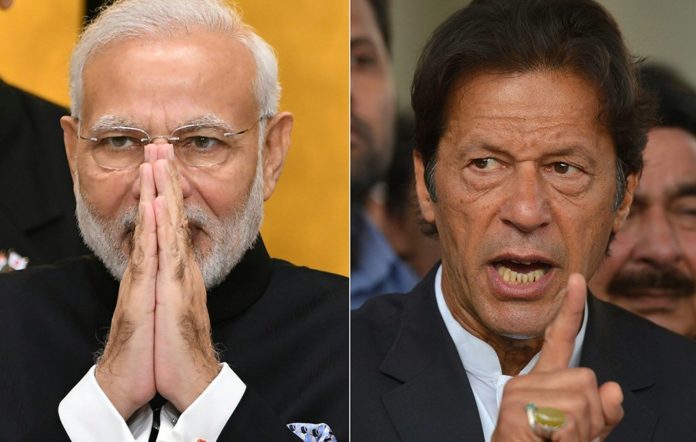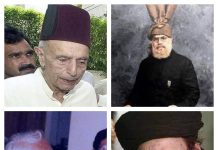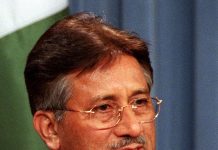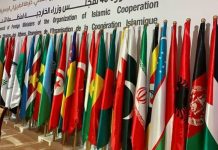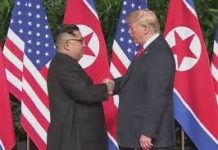By Muhammad Luqman
Indian Prime Minister Narendra Modi and External Affairs Minister Subrahmanyam Jaishankar have replied to letters by their Pakistani counterparts, according to Pakistan’s foreign office.
Earlier this month, Prime Minister Imran Khan, in a letter written to felicitate Modi on assuming office for a second term, had renewed Pakistan’s offer to hold dialogue with India to resolve contentious issues, including the Jammu and Kashmir dispute and terrorism, to restore peace in the region, and address the problems confronting the people of the two countries.
Foreign Minister Shah Mehmood Qureshi had also written a letter to the newly appointed Jaishankar and congratulated him on assuming office.
According to the Foreign Office source on Thursday, the letters were received by Pakistan through diplomatic channels on Tuesday.
In their response, Modi and Jaishankar wrote about comprehensive and fresh talks between India and Pakistan, according to English newspaper, Daily Dawn.
They said that India desires normal and cooperative relations with all neighbours, including Pakistan, adding that it has always preferred progress and peace of the people.
According to a statement by the Indian External Affairs Ministry, Modi said “it is important to build an environment of trust, free of terror, violence and hostility”. Minister Jaishankar also emphasised the need for an “atmosphere free from the shadow of terror and violence”.
The sentiments from Pakistan “were also appreciated in the letters”, said the Foreign Office source.
Pakistan’s Ministry of Foreign Affairs, late Thursday evening, warned the media not to speculate on the correspondence between the premiership of both countries and their foreign ministers.
It underlined that the gesture to congratulate new office holders and for them to respond was an established diplomatic practice.
“Pakistan’s position on the way forward in Pakistan-India relations was clear and well-known and did not require repetition,” said a statement by the ministry’s spokesperson.
“The vision of peace, progress and prosperity in South Asia could be advanced by peacefully resolving all outstanding disputes, including Jammu and Kashmir, and moving away from the dynamic of confrontation to cooperation,” it concluded.
The letters come after first face-to-face interaction between the prime ministers of the South Asian countries last week, which Foreign Minister Qureshi described as a “courtesy” meeting. He said Imran and Modi shook hands and exchanged pleasantries during their interaction on the sidelines of the 19th Shanghai Cooperation Organisation (SCO) summit in Bishkek.
Soon after coming to power last year, Prime Minister Imran had expressed the hope that sour relations between the nuclear neighbours would become normal.
However, a war-like situation emerged between Pakistan and India in February after a suicide bombing in India-occupied Kashmir’s Pulwama district killed more than 40 Indian security forces personnel. India immediately hurled allegations of Pakistan’s involvement, whereas Islamabad strongly rejected the claim and asked for “actionable evidence”.
The situation aggravated on Feb 25 when Indian fighter jets conducted an airstrike on Balakot in Khyber Pakhtunkhwa in retaliation of the Pulwama attack. The next day, two Indian Air Force MiG 21 aircraft were shot down by the Pakistan Air Force in Kashmir and an Indian pilot named Abhinandan Varthaman was captured. However, as a goodwill gesture announced by PM Imran, the pilot was later handed over to Indian authorities.
The premier Imran Khan on a number of occasions had expressed the view that Indian leaders were using anti-Pakistan sentiments to gain people’s support in the polls.
Following Modi’s election win in May, the premier telephoned his newly elected Indian counterpart to congratulate him.
Last month, Foreign Minister Qureshi had a chance meeting with the then Indian external affairs minister, Sushma Swaraj, on the sidelines of the Shanghai Cooperation Organisation in Bishkek, Kyrgyzstan.
It was the first face-to-face meeting between the two ministers and the highest-level interaction since the post-Pulwama standoff.
Although Pakistan had closed its airspace for flights to and from India on Feb 26 after the Balakot standoff, Islamabad reportedly made a rare exception for Swaraj to fly directly through Pakistani airspace to attend the SCO meeting.


